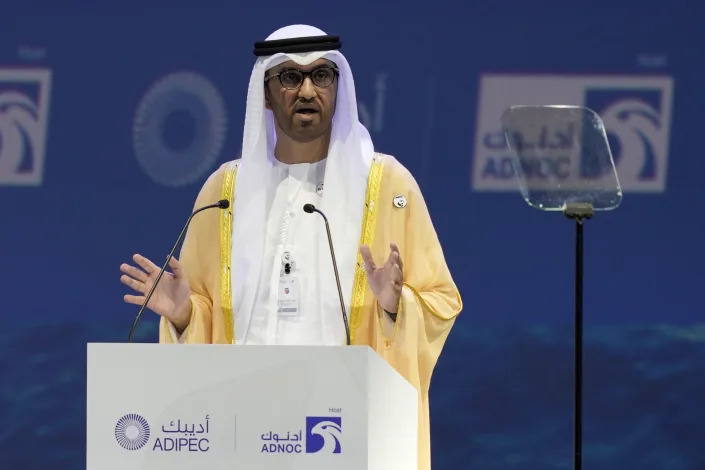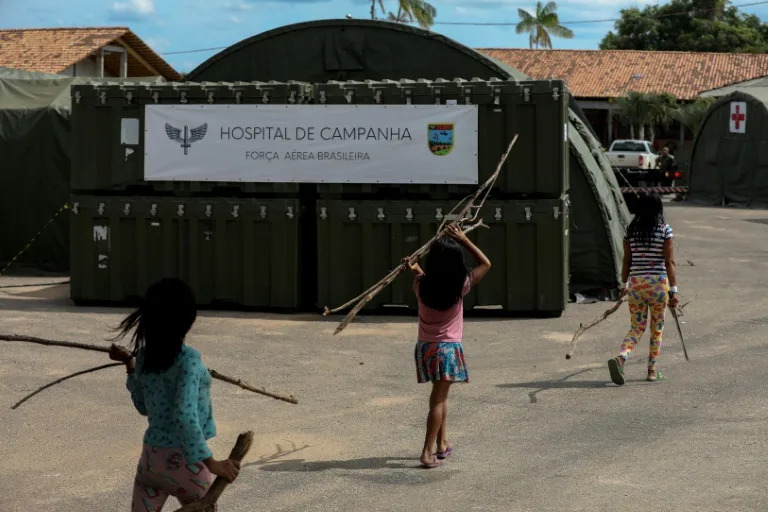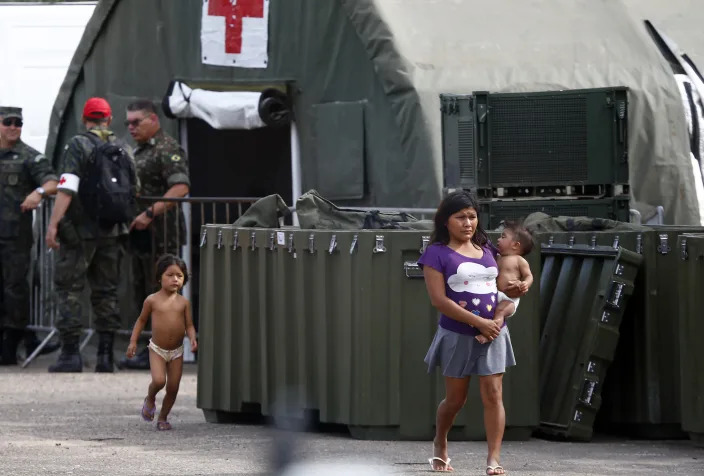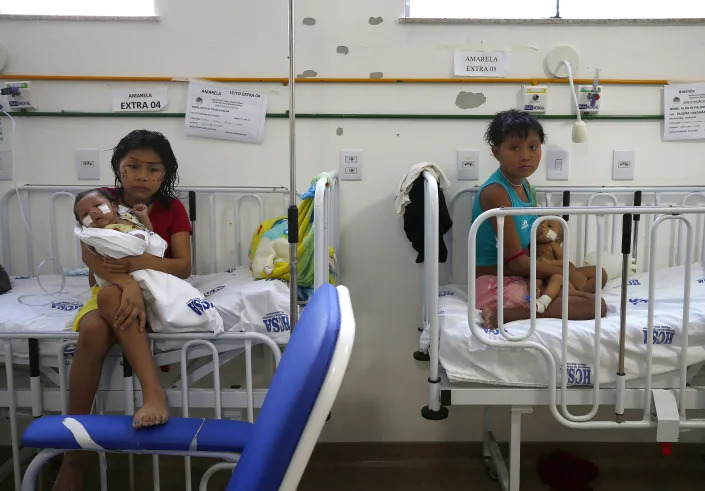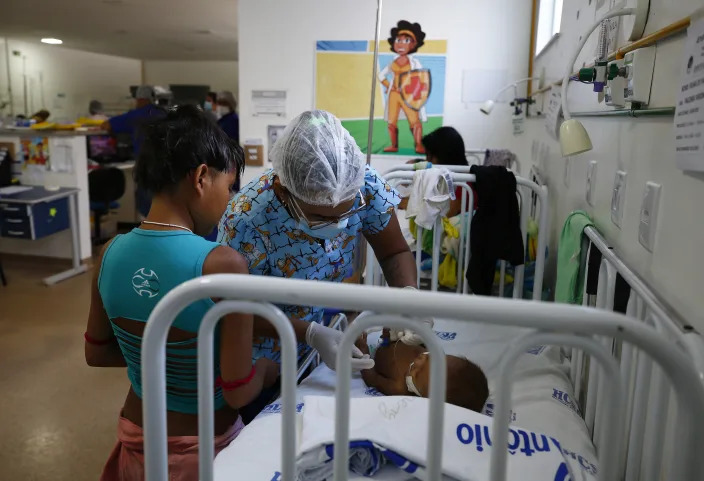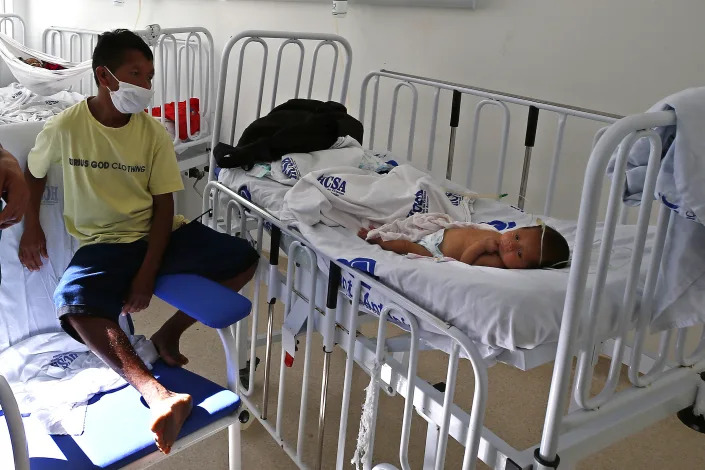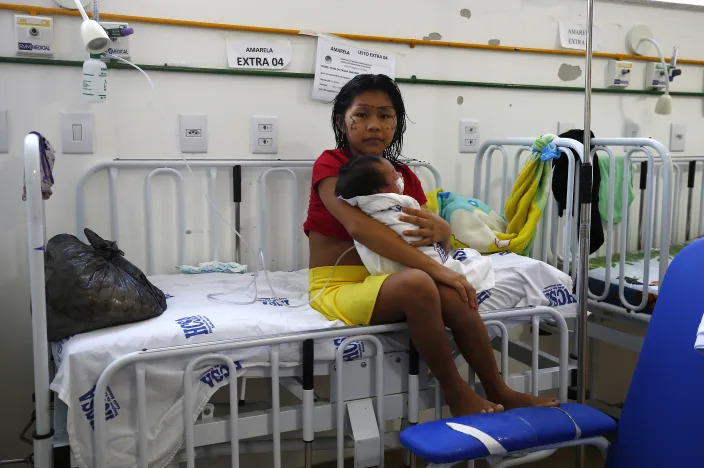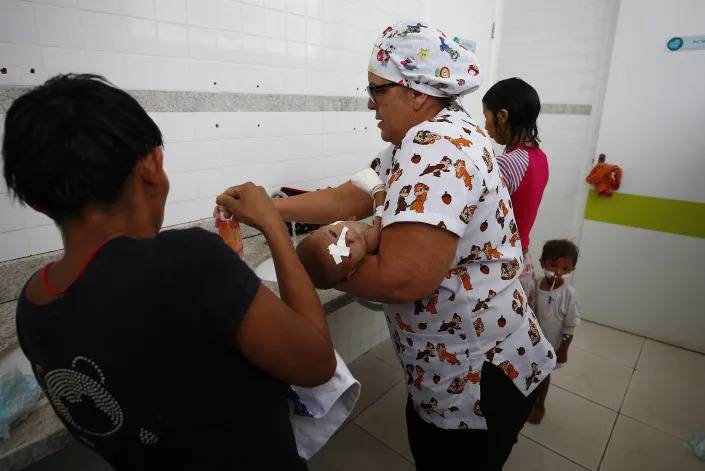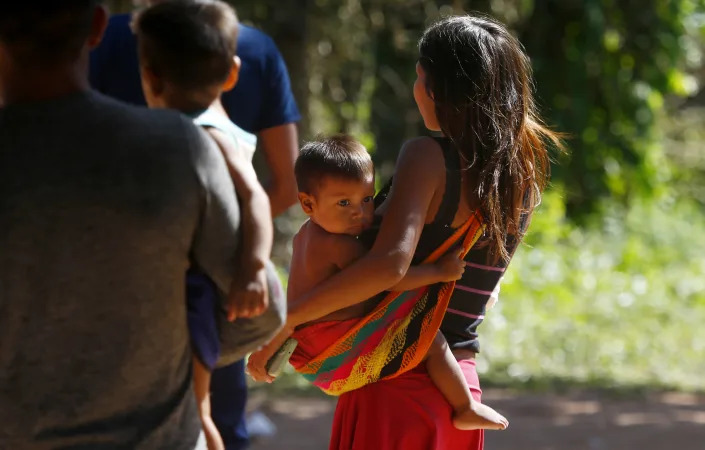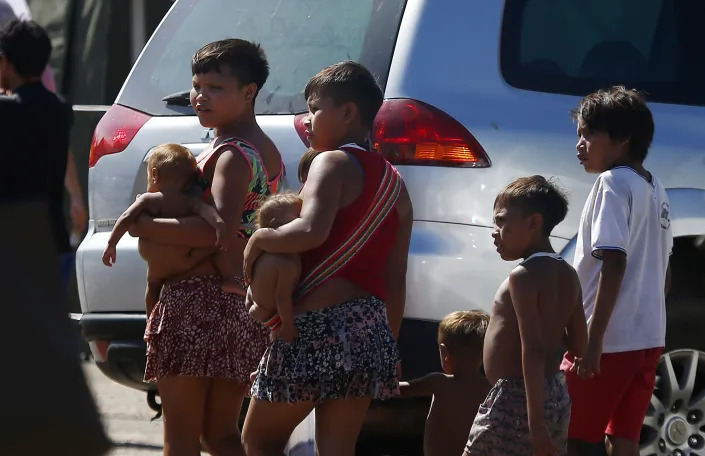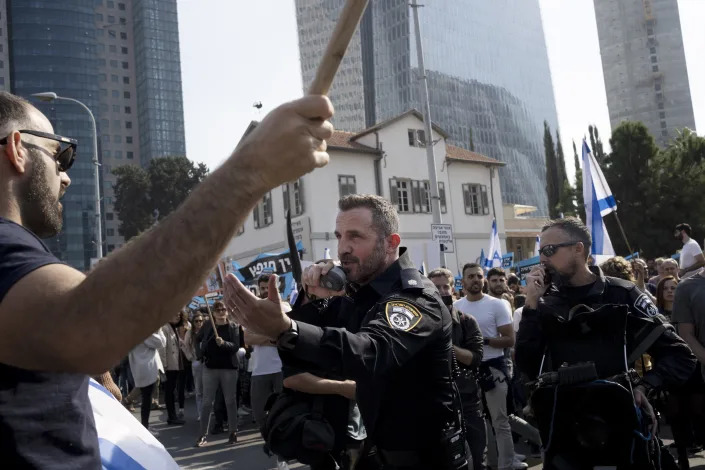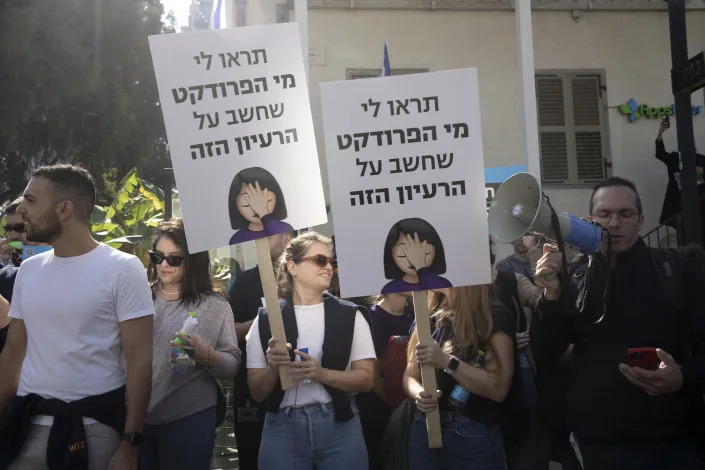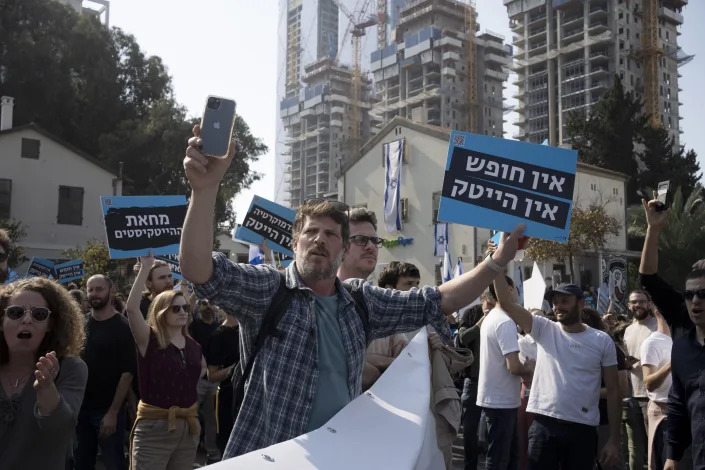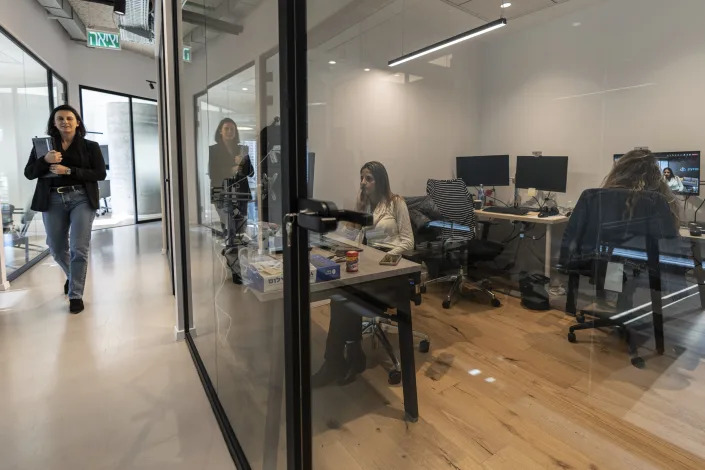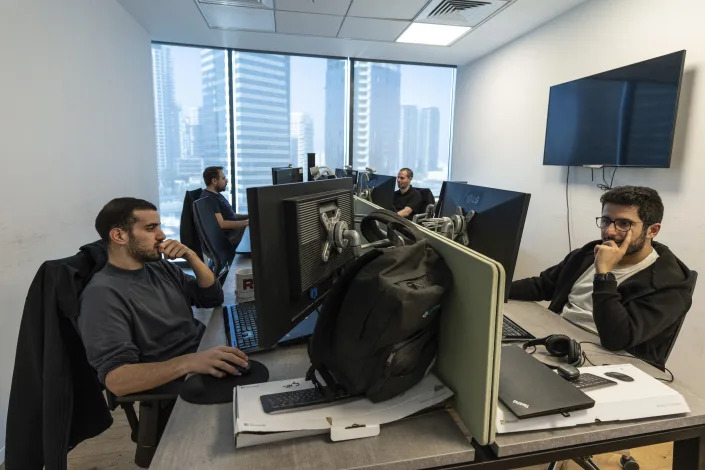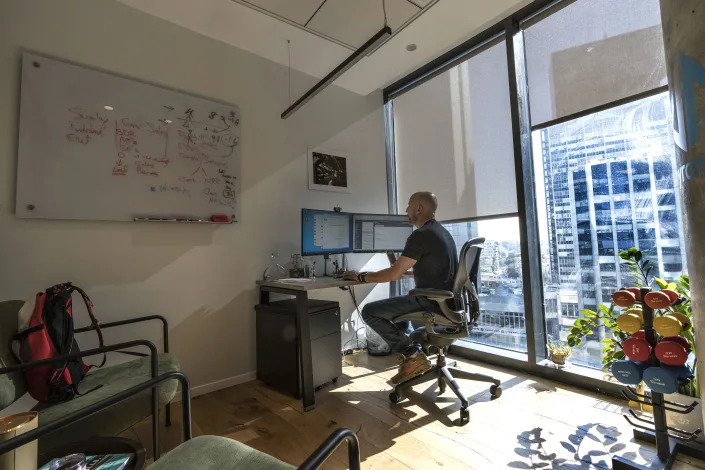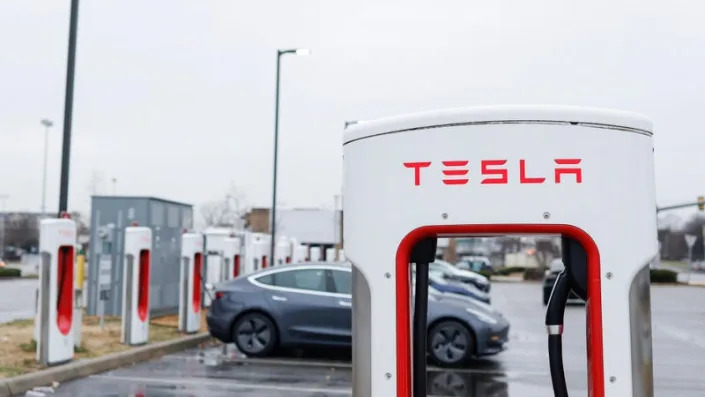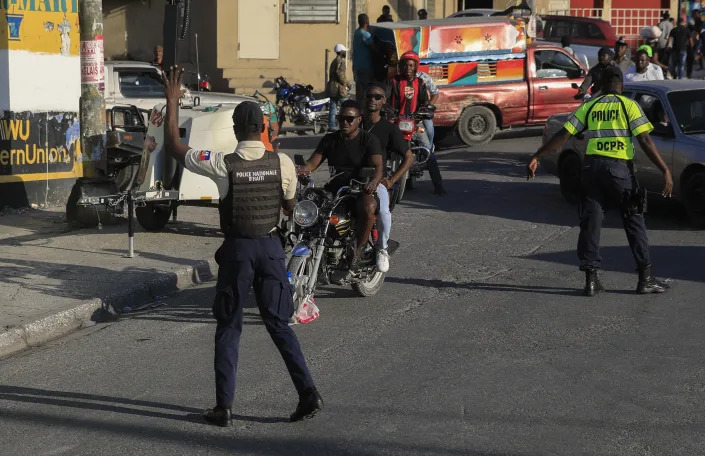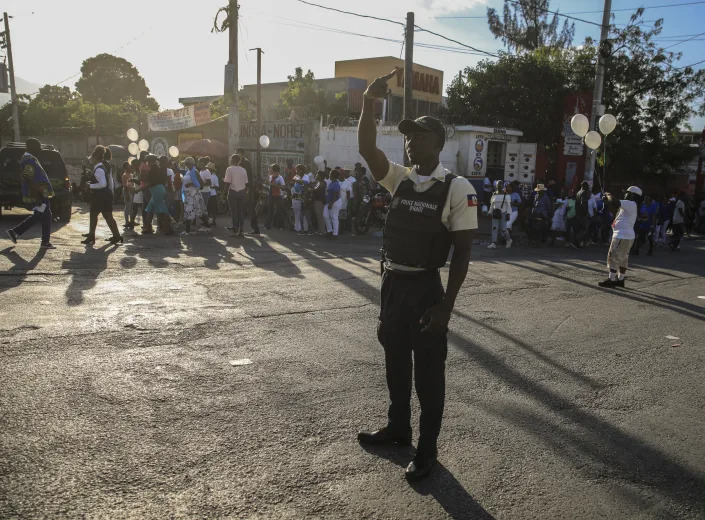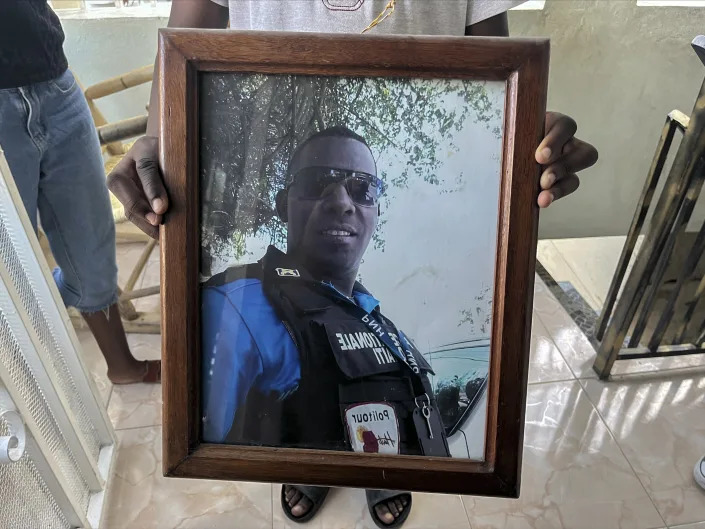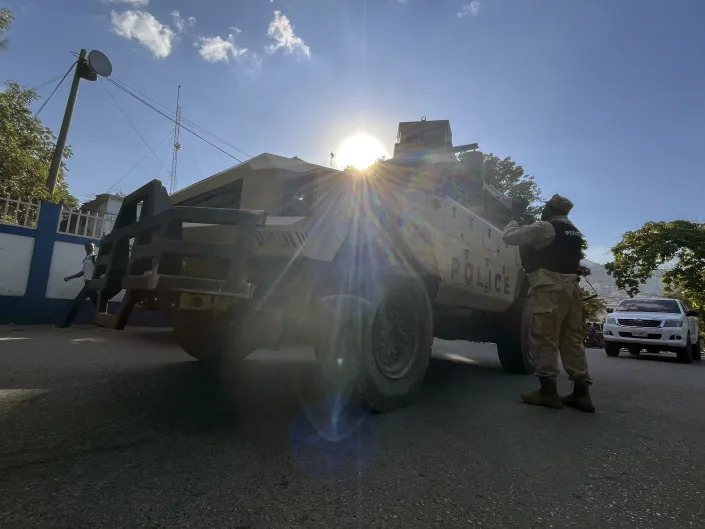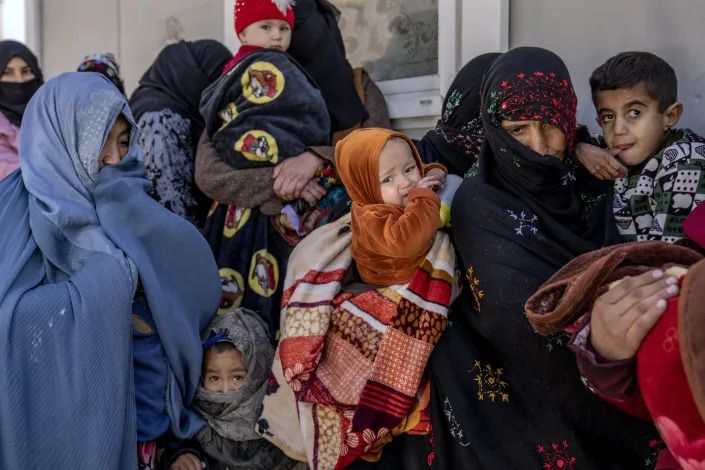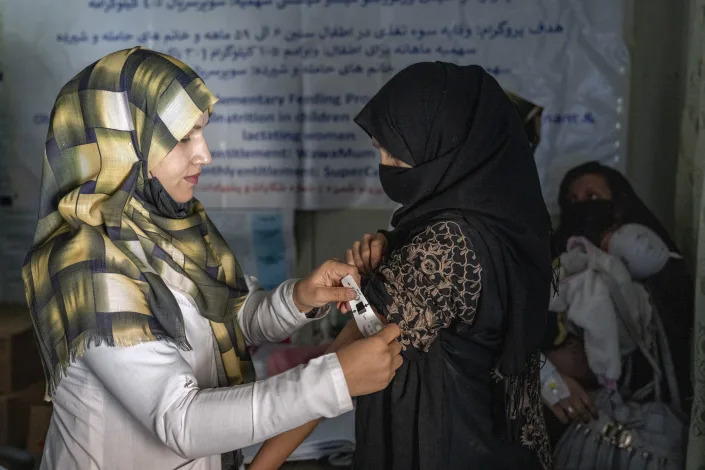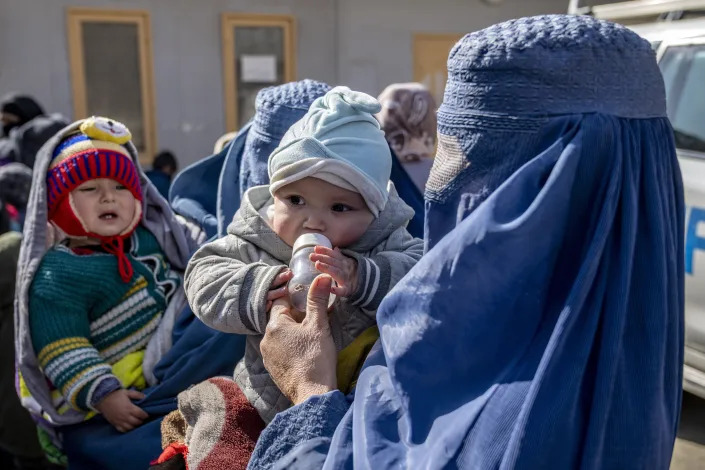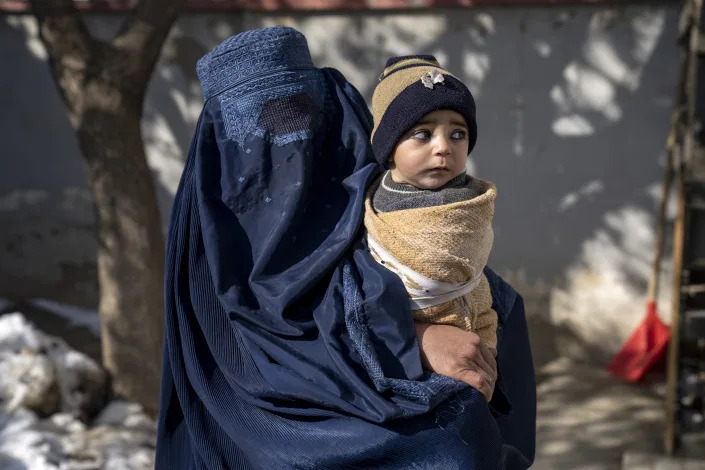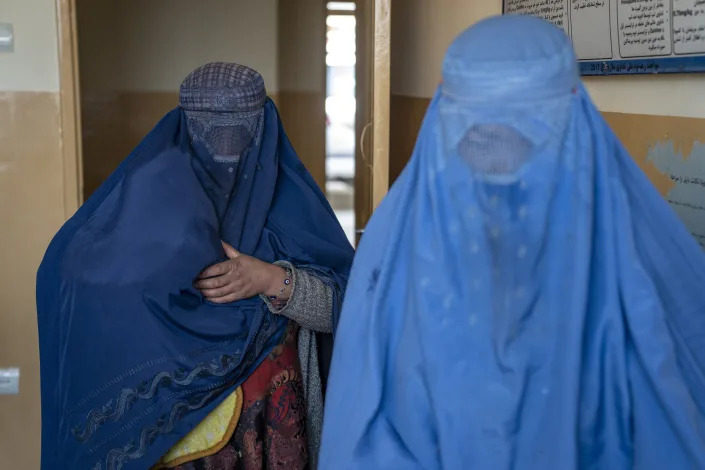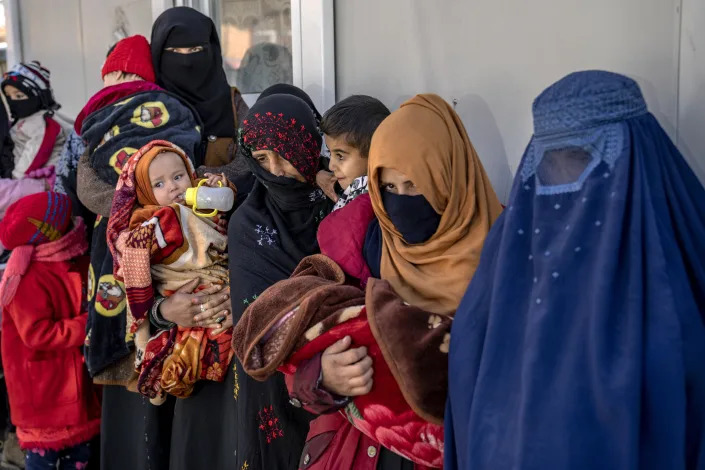Alexander Nazaryan
·Senior White House Correspondent
Thu, January 26, 2023
The Wuhan Institute of Virology in Wuhan, China, in 2021. (Hector Retamal/AFP via Getty Images)
The National Institutes of Health failed to provide adequate oversight of an American organization that funded controversial research at the Wuhan Institute of Virology in China, according to a new government report that is sure to raise new questions about the origins of the COVID-19 pandemic.
The report is evidence of “major failures in past NIH oversight of high-risk research on enhanced potential pandemic pathogens,” Rutgers molecular biologist Richard Ebright told Yahoo News in an email.
Issued by the inspector general of the federal Department of Health and Human Services, the new report says nothing about the origins of the coronavirus. For the most part, it concerns research that took place well before the first cases of what came to be known as SARS-CoV-2 were discovered in China in late 2019.
But it does note that the American organization in question, the EcoHealth Alliance, should have been more rigorously scrutinized by federal officials regarding assurances that its partner lab in Wuhan was not using U.S. funds to conduct gain-of-function research, which boosts viruses to study how they might evolve in nature.
“The entire picture starts to look extremely disconcerting,” mathematical biologist Alex Washburne told Yahoo News. He said that a project on coronaviruses originating in bats, for which the EcoHealth Alliance had given a grant to the Wuhan Institute of Virology, “was clearly gain-of-function research.”
Sen. Rand Paul at a Senate committee hearing in June 2022.
(Tom Williams/CQ Roll Call via Getty Images)
Republicans seized on the findings, with Sen. Rand Paul of Kentucky — a skeptic of virtually every aspect of the official coronavirus narrative — charging that the NIH “failed to conduct adequate oversight.”
China hawks will also be emboldened, accusing President Biden of not being forceful enough with the East Asian superpower.
But it is the NIH that is bound to face the most intense scrutiny. In a Twitter message, House Republicans promised that “oversight & accountability” are coming to the federal biomedical establishment, which has been celebrated by some but demonized by others.
The new report is likely to feature prominently in hearings they plan to hold.
Politics aside, Wednesday’s report raises important questions about how federal funds are monitored when they flow to foreign governments and organizations. Though the context is different, similar questions have been asked about the billions of dollars in U.S. military and civilian support to Ukraine.
“It’s a damning indictment of N.I.H.,” Georgetown University public health law expert Lawrence Gostin told the New York Times.
Republicans seized on the findings, with Sen. Rand Paul of Kentucky — a skeptic of virtually every aspect of the official coronavirus narrative — charging that the NIH “failed to conduct adequate oversight.”
China hawks will also be emboldened, accusing President Biden of not being forceful enough with the East Asian superpower.
But it is the NIH that is bound to face the most intense scrutiny. In a Twitter message, House Republicans promised that “oversight & accountability” are coming to the federal biomedical establishment, which has been celebrated by some but demonized by others.
The new report is likely to feature prominently in hearings they plan to hold.
Politics aside, Wednesday’s report raises important questions about how federal funds are monitored when they flow to foreign governments and organizations. Though the context is different, similar questions have been asked about the billions of dollars in U.S. military and civilian support to Ukraine.
“It’s a damning indictment of N.I.H.,” Georgetown University public health law expert Lawrence Gostin told the New York Times.
The main building of the National Institutes of Health in Bethesda, Md.
(J. Scott Applewhite/AP)
The new report examines a series of grants — $8 million total, awarded during both the Obama and Trump administrations — to EcoHealth Alliance, a New York-based nonprofit that subsequently sent a total of $598,611 to the Wuhan virology lab between 2015 and 2019.
The HHS inspector general, Christi Grimm, found that the “NIH did not effectively monitor or take timely action to address EcoHealth’s compliance with some requirements” to report research being conducted in Wuhan with U.S. funds.
“Deficiencies in complying with those procedures limited NIH and EcoHealth’s ability to effectively monitor Federal grant awards and subawards to understand the nature of the research conducted, identify potential problem areas, and take corrective action,” Grimm concluded.
The NIH “raised concerns” about some of the research EcoHealth was funding in China but ultimately did not put a halt to any of the work, Grimm wrote in her 64-page report. Crucially, EcoHealth failed to produce a progress report about its subgrants in the summer of 2019, just months before the advent of the coronavirus.
Despite these concerns, EcoHealth continues to work with the federal government; the organization was recently the recipient of $3 million from the Department of Defense to study viruses in the Philippines.
The new report examines a series of grants — $8 million total, awarded during both the Obama and Trump administrations — to EcoHealth Alliance, a New York-based nonprofit that subsequently sent a total of $598,611 to the Wuhan virology lab between 2015 and 2019.
The HHS inspector general, Christi Grimm, found that the “NIH did not effectively monitor or take timely action to address EcoHealth’s compliance with some requirements” to report research being conducted in Wuhan with U.S. funds.
“Deficiencies in complying with those procedures limited NIH and EcoHealth’s ability to effectively monitor Federal grant awards and subawards to understand the nature of the research conducted, identify potential problem areas, and take corrective action,” Grimm concluded.
The NIH “raised concerns” about some of the research EcoHealth was funding in China but ultimately did not put a halt to any of the work, Grimm wrote in her 64-page report. Crucially, EcoHealth failed to produce a progress report about its subgrants in the summer of 2019, just months before the advent of the coronavirus.
Despite these concerns, EcoHealth continues to work with the federal government; the organization was recently the recipient of $3 million from the Department of Defense to study viruses in the Philippines.
A security guard outside the Huanan Seafood Wholesale Market in Wuhan, where the coronavirus was detected in 2020. (Hector Retamal/AFP via Getty Images)
In a statement, EcoHealth said it “welcomes” the inspector general’s “oversight and collaborated fully and transparently with this audit.” The organization also provided point-by-point responses to the inspector general’s findings that defended its work in China.
Since the first months of the pandemic, EcoHealth Alliance has been at the center of both legitimate and conspiratorial inquiries into how, and where, the coronavirus originated. Although it was originally thought that the virus originated at a wildlife market, no explanation has been sufficiently convincing to allow for anything approaching scientific consensus.
One attempted explanation is the so-called lab leak theory, which claims that the virus escaped from a laboratory — with the Wuhan Institute of Virology being the most likely candidate — into the general population. The hypothesis was initially dismissed as a conspiracy theory but has since been acknowledged as plausible by many experts.
Evidence, however, remains circumstantial, and most scientists subscribe to a model of pathogenesis involving an animal-to-person “spillover.” Ebola and HIV took the same route to becoming infectious diseases in the human population.
Wednesday’s report could invigorate investigators who continue to believe that China is hiding crucial evidence, including about a potential accident.
The campus of the Wuhan Institute of Virology in May 2020.
(Hector Retamal/AFP via Getty Images)
When the pandemic began, EcoHealth president Peter Daszak argued that criticizing the zoonotic spillover hypothesis — that is, the notion that the coronavirus came from an animal, possibly one sold at a wildlife market — would only stoke xenophobia.
Daszak compelled members of the scientific community to sign a letter, published in February 2020 in the Lancet — one of the world’s most esteemed medical journals — criticizing the suggestion that a laboratory accident (a not-uncommon occurrence in either China or the West) could have been involved.
“We stand together to strongly condemn conspiracy theories suggesting that COVID-19 does not have a natural origin,” the letter said. “Conspiracy theories do nothing but create fear, rumours, and prejudice that jeopardise our global collaboration in the fight against this virus.”
But after the extent of EcoHealth Alliance’s work in China became known in 2021, the Lancet had to publish an addendum acknowledging Daszak’s potential conflict of interest in defending China.
The new report comes as House Republicans prepare to probe several aspects of the nation’s pandemic response, including how the virus originated. Among the lawmakers named to the committee is far-right Rep. Marjorie Taylor Greene of Georgia, who has suggested that the coronavirus was the result of a bioweapons experiment. She has accused Dr. Anthony Fauci of complicity in those experiments — of which no evidence exists — and called for his firing as the nation’s top infectious disease expert.
Fauci, who retired at the end of last year, has defended working with Chinese partners. But he has also conceded that much about how the virus came to be remains unknown.
“I have a completely open mind,” he said in November.
When the pandemic began, EcoHealth president Peter Daszak argued that criticizing the zoonotic spillover hypothesis — that is, the notion that the coronavirus came from an animal, possibly one sold at a wildlife market — would only stoke xenophobia.
Daszak compelled members of the scientific community to sign a letter, published in February 2020 in the Lancet — one of the world’s most esteemed medical journals — criticizing the suggestion that a laboratory accident (a not-uncommon occurrence in either China or the West) could have been involved.
“We stand together to strongly condemn conspiracy theories suggesting that COVID-19 does not have a natural origin,” the letter said. “Conspiracy theories do nothing but create fear, rumours, and prejudice that jeopardise our global collaboration in the fight against this virus.”
But after the extent of EcoHealth Alliance’s work in China became known in 2021, the Lancet had to publish an addendum acknowledging Daszak’s potential conflict of interest in defending China.
The new report comes as House Republicans prepare to probe several aspects of the nation’s pandemic response, including how the virus originated. Among the lawmakers named to the committee is far-right Rep. Marjorie Taylor Greene of Georgia, who has suggested that the coronavirus was the result of a bioweapons experiment. She has accused Dr. Anthony Fauci of complicity in those experiments — of which no evidence exists — and called for his firing as the nation’s top infectious disease expert.
Fauci, who retired at the end of last year, has defended working with Chinese partners. But he has also conceded that much about how the virus came to be remains unknown.
“I have a completely open mind,” he said in November.
